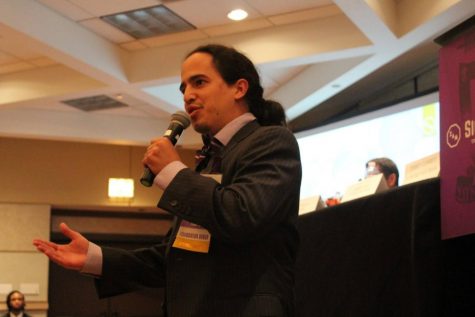The Sci-Files – 01/30/2022 – Liang Zhao – The Magic of “Poop Water” to Monitor COVID-19 Incidences
January 31, 2022

On this week’s SciFiles, your hosts Chelsie and Daniel interview Liang Zhao. Liang is a 2nd-year Ph.D. student in the Department of Civil and Environmental Engineering and a lab member of the Environmental Virology Laboratory. His current research focuses on the prediction of fluctuations of COVID-19 incidences in communities through the application of wastewater-based epidemiology (WBE). As the prevalence and transmissions of COVID-19 and its variants persisting across the world from the inception of 2020, researchers, epidemiologists, and public health scientists have been working assiduously on the advancement of more accurate, complete, real-time monitoring and prediction methods of the virus for the purpose of public health protection and potential prediction of upcoming outbreaks. In a more than 15-month study amid the COVID-19 pandemic, Liang and his colleagues have analyzed hundreds of untreated wastewater samples that were collected weekly from the Great Lakes Water Authority (GLWA) Water Resource Recovery Facility (WRRF), located in southeast Michigan, and successfully detected and monitored SARS-CoV-2, the virus that caused COVID-19. He and his colleagues worked to build models and analyzed the statistics in order to correlate the SARS-CoV-2 concentrations in wastewater to the confirmed COVID-19 cases in the communities of the City of Detroit, Wayne, Macomb, and Oakland counties. He and his colleagues found that the wastewater testing results of SARS-CoV-2 are ahead of the fluctuations of COVID-19 cases in communities for a lag time of 4 to 5 weeks. This result is quite significant and promising since the lag time provides early warnings of upcoming fluctuations of COVID-19 cases in communities and provides important references for public health policies. He and his colleagues will summarize the findings and submit the results in a journal publication very soon. He thinks that the current research monitoring COVID-19 in wastewater really requires collaboration efforts including environmental engineers, hydrologists, GIS specialists, public health workers, molecular microbiologists, epidemiologists and data science specialists, and it would be really encouraging and exciting to see the work has actual impacts on people’s lives. If you’re interested in talking about your MSU research on the radio or nominating a student, please email Chelsie and Danny at scifiles@impact89fm.org. Check The Sci-Files out on Twitter, Facebook, Instagram, LinkedIn, and YouTube!































